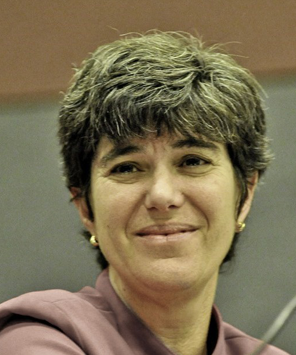Susan Sturm is the George M. Jaffin Professor of Law and Social Responsibility and the founding director of the Center for Institutional and Social Change at Columbia Law School. Her work focuses on building the capacity of people and institutions to confront racism, reduce discrimination, increase access to justice, and move educational, legal, and cultural institutions toward full participation.
Professor Sturm has published extensively about building the architecture of full participation, addressing second-generation employment discrimination, transforming the justice system, and understanding the role of law, lawyers, and law schools in pursuing just and equitable institutions. Along with What Might Be, Professor Sturm is the author, with Lani Guinier, of Who’s Qualified: A New Democracy Forum on the Future of Affirmative Action.
Professor Sturm is the co-designer of courses and workshops on Lawyer Leadership: Leading Self, Leading Others, Leading Change, and Access to Justice for People in Prison. She is the architect and creator of the Centering Change Skills Hub, an online platform aimed at cultivating leadership and building the capacity to address race in law schools, court systems, and communities. She has served as the Vice President and Director of Policy for the Tony award-winning Broadway Advocacy Coalition and is the co-creator and instructor, with BAC, of Theater of Change: Reimagining Justice, a highly acclaimed course offered at Columbia Law School. Professor Sturm is an inaugural Provost Senior Faculty Teaching Scholar and the recipient of the Presidential Teaching Award for Outstanding Teaching at Columbia University.
Professor Sturm collaborates with a wide variety of higher education, legal, artistic, government, criminal justice, and community-based organizations and networks involved in organizational and culture change. These collaborations include:
Projects, courses, and workshops aimed at building capacity to advance full participation in organizations and systems
Courses and workshops aimed at building the capacity of people with different backgrounds, identities, and expertise to collaborate and advance change.
Research, writing, and activism projects aimed at increasing the capacity of people who are justice-involved to advocate for themselves and their communities.
Courses and workshops conducted in collaboration with the Broadway Advocacy Coalition that use the Theater of Change© methodology to transform the criminal legal system and develop microspaces of justice.
Participatory action research aimed at understanding the opportunities and barriers to pursuing full participation in organizations
Current Projects
-
Collaboration with Jailhouse Lawyers Manual to make legal resources accessible and actionable for people in and after incarceration with full participation by people and organizations directly affected by incarceration.
-
The Theater of Change (TOC) brings together law and policy professionals, students, theater artists, and directly impacted change agents with first-hand experience with systemic inequities that call for transformative change. TOC enables these groups to learn from each other and expand their capacity, community, and impact. This cross-disciplinary approach fosters micro-spaces for advancing institutional and legal change that enable trust building across lines of difference, and enable short term change that lays the foundation for longer term systems change.
The methodology hinges on centering directly impacted individuals, their communities and their lived experiences in policy discourse and decision-making. Participants ultimately collaborate as equal partners to create arts-based performance pieces that are part of an activism strategy to advance change in these areas and policies.
-
The pressing problems facing our world and the polarization of politics and public discourse have called upon lawyers to navigate everyday interactions in particularly challenging times that demand the ability to address problems under conditions of uncertainty, to navigate conflict and change, to strategize and innovate, to collaborate across difference, and to find novel ways to connect with people. Lawyer leadership builds the capacity of legal actors to cultivate presence, awareness, resilience, racial literacy, and the ability to have difficult conversations. These capacities add up to leadership as we define it: collaborating effectively to achieve common goals and tackle the intractable problems facing our world.
